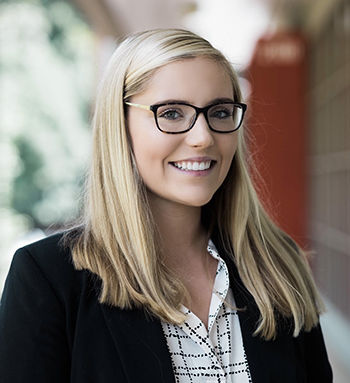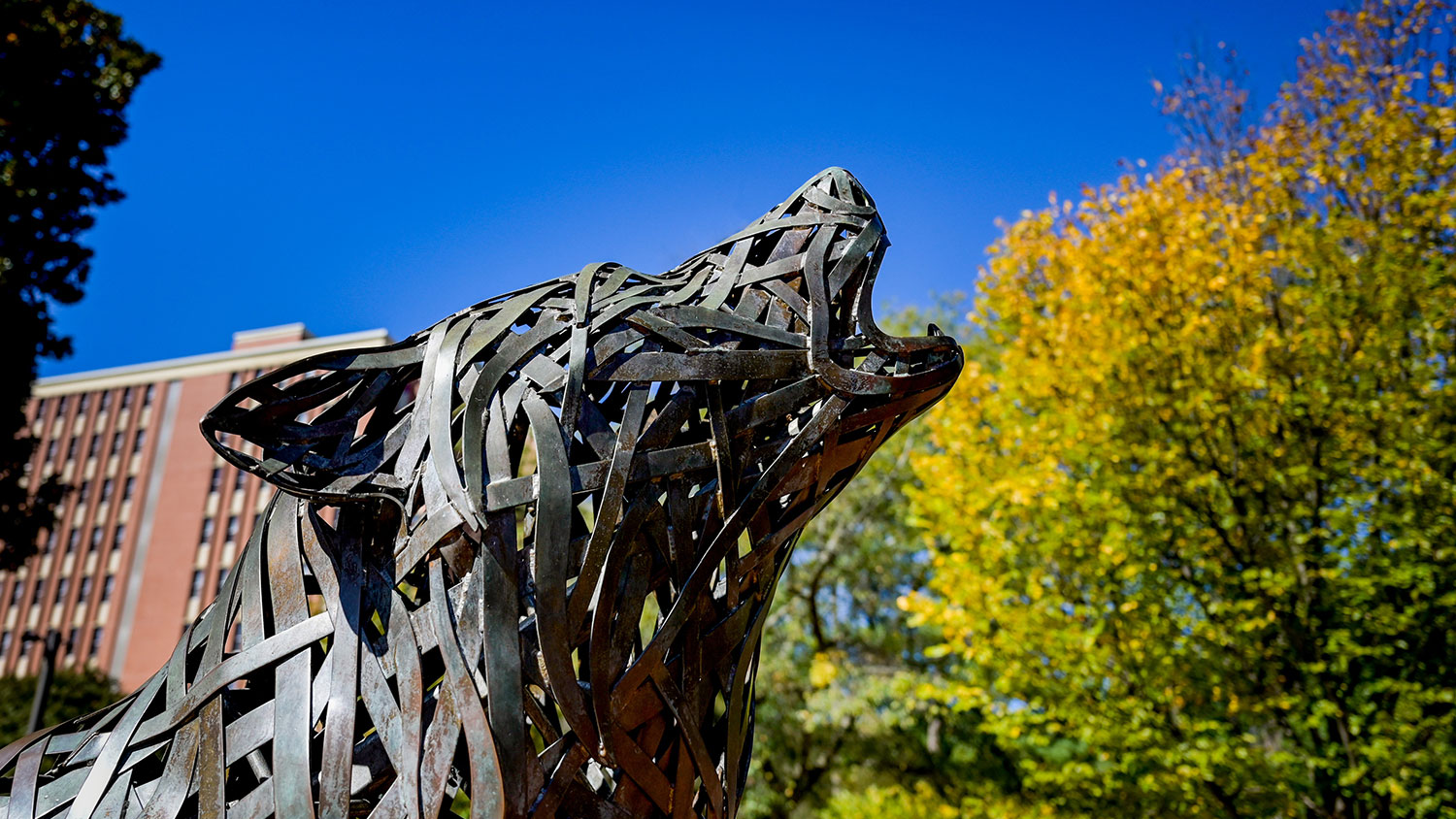Combining Technology and Human Interaction to Create an Audit Simulation

By Jess Clarke
As Mckenzie Greene and her Jenkins Master of Accounting (MAC) team walked around the RedPack Beer Co. warehouse performing an inventory observation audit, they looked for any problems to document: broken bottles, dented kegs, unlocked windows, fire hazards, expired products.
Her impression of the experience? “It was super cool,” Greene says.
Even though she never stepped inside the warehouse.
The project for Greene’s advanced auditing class was an audit simulation — complete with pallets of beer and warehouse workers — developed with software by Apex-based Spark Plug Games.
The intent is “to give students as real an experience as we can without having to build a warehouse,” says MAC Program Director Scott Showalter, who taught Greene’s course. “It combines technology and human interaction…It’s not just a game.”
He worked with Spark Plug Games owner John O’Neill and MAC Assistant Director for Academic Programs Jessica Moran to create the simulation, which features three different warehouse configurations that student teams randomly were assigned to as they logged in, to vary the experience.
“At first, I was somewhat overwhelmed because it was like a real-life situation,” says Greene, who graduated in May. “It’s hard to make it as realistic as it was, and they did a great job. I had no idea it would be that detailed.”
For the simulation, students had an audit program and supporting documents prepared by the “client,” the warehouse supervisor, represented by Showalter. Each group met with the client before entering the simulation. After counting the finished-goods inventory of the fictional brewing company, students presented their findings to the client. Then they completed the audit program and wrote a memo about their results.
In talking with the warehouse supervisor, “Students learned about interactions with a client…and what kinds of questions to ask,” Showalter says.
He evaluated student teams on their interviews with him as the client and on how they compiled their audit presentation. “This exercise is to get them to tune up their professional skepticism,” he says. “They have to have a questioning mind, be willing to ask questions and not be easily satisfied…The learning was not only students doing the project but sitting through the debriefing with me afterward.”
One challenge for Greene’s team was making sure they accurately documented what they observed in the warehouse. They went back into the simulation once because they’d overlooked a problem.
“The most valuable thing was not only learning how an inventory count works but how to effectively document our results, come up with questions and work as a team. You have to split up the tasks to complete the audit,” Greene says. “It felt at the end like we had performed a real audit.”

The simulation was modeled on the original version, developed with the online multimedia platform Second Life. Showalter, Poole College Dean Frank Buckless and Poole accounting department head Kathy Krawczyk developed that version and received an Innovation in Accounting Education award from the American Accounting Association in 2016.
The new iteration “is not just 2.0, this is 10.0, a huge leap forward,” Showalter says.
What stands out about the new model to O’Neill, with Spark Plug Games, is that, unlike the Second Life simulation, this iteration can be customized for other classes and academic disciplines. “This could expand and change beyond being a warehouse for beer brewing,” he says. “The plan is for Scott to hand this off to other professors.”
And with no software to download, the simulation is more accessible for students using any type of computer.
Games are used effectively as learning tools more and more in higher education and K-12 systems. O’Neill has worked with Elon and Eastern Carolina universities and other schools.
“The fundamentals we look at are fun, interactivity and conveying a message,” he says. “If it’s approachable, enjoyable and helps you achieve a task, you’ll likely use it,” he says. “Serious games balance a lot of information and knowledge we’ve built from creating pure entertainment, so now it’s entertainment with learning.”
That approach worked for Greene, who expects the inventory simulation to be helpful as she starts her career. “I’ll be more prepared when I perform an inventory count and maybe an audit,” she says. “I’ll use the lessons I learned about communicating and documenting information in an audit program.”
She’ll start work as an audit associate with Ernst & Young in Raleigh in September.
“If NC State educators can find a way to incorporate simulations like this in more classes,” Greene says, “I guarantee more students would benefit because of the gaming aspect and the lifelike lessons in them.”
This post was originally published in MAC Program.
- Categories:


